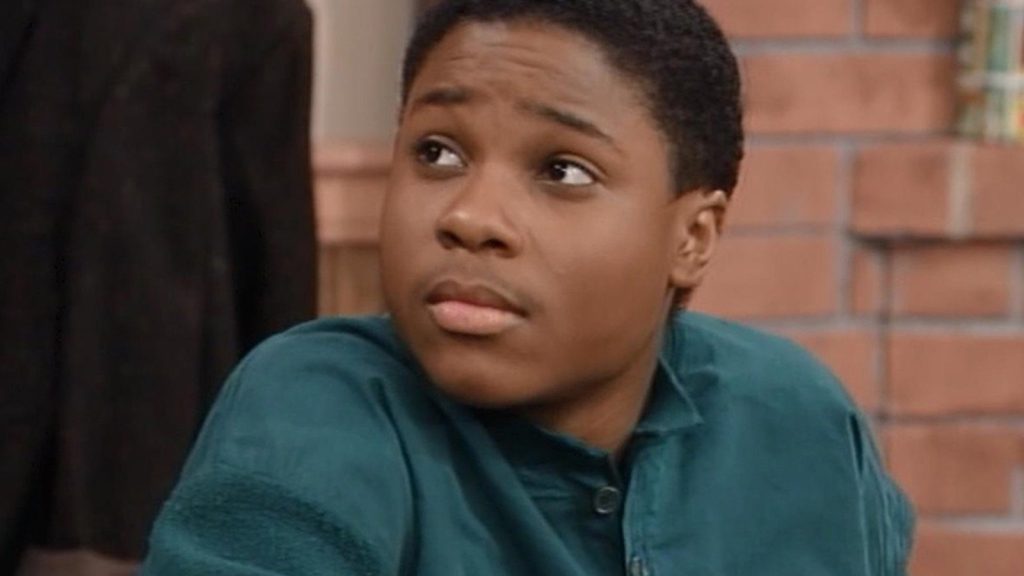My favorite episode of The Cosby Show is “Theo’s Holiday.” It’s one from 1986, in which all the Huxtables band together to turn their stately Brooklyn brownstone into a real-world simulation for the family’s only son, Theo — who owes three of his four sisters money (even the pint-sized youngest child, Rudy, who demands her quarter back). When Theo, played by Malcolm-Jamal Warner, asks his parents for an advance on his allowance to settle his debts, Bill Cosby’s patriarch Cliff Huxtable reminds him that he’s already “backed up to your fiftieth birthday.” Theo’s mom, Clair (Phylicia Rashad), is concerned: When will he learn to manage his money?
Theo, though, isn’t worried about it — he’s going to become a model when he turns 18 and get rich quick. “I’m going to have a new car, nice clothes, and a great apartment,” Theo announces, smugly. “Well, you make it sound easy,” retorts Cliff. “It will be,” Theo says before jetting off to spend the night at his best friend Cockroach’s place. When he returns, the family has cleared his bedroom of his furniture, turning it into an “apartment” he’ll have to rent. Their home becomes a maze of adulthood, with Cliff playing the landlord, Clair running the restaurant and furniture store Theo can’t afford, his elder sister Denise (Lisa Bonet) running the modeling agency that won’t hire him, and Rudy (Keshia Knight Pulliam) playing the crotchety bank executive that won’t give him a loan. Warner, earnest and resilient asTheo, capably dances between being in on the game and exasperated by it.
So, well before “adulting” became a common phrase, the Huxtables forced Theo to try his hand at it. When I watched as a kid, all of nine years old, I was just like him. I was eager to taste the freedom of independence and totally naive about what it would really cost, not just in money, but in time, comfort, and sanity. As Warner oscillates between amusement, optimism, desperation and dread as Theo, he embodies the hope and turmoil of growing up. His performance is still an apt reminder of what an accomplishment it is to survive on your own, and what a blessing it is to have support while you try. I have to remind myself of these things constantly to keep going.
Warner did a lot of growing up in front of the world before his life was devastatingly cut short this week in a tragic drowning accident at age 54. He worked quietly but steadily for decades, going on to appear in more series (Malcolm & Eddie, Reed Between the Lines, and Suits, to name a few), movies, and off-Broadway plays. He directed episodes of The Fresh Prince of Bel-Air, Sesame Street, and other classic TV shows. He released four albums of spoken word and R&B. Most importantly, he had a family of his own, a wife and daughter he largely kept from the public eye.
Just last week, a friend and I were reminiscing about “Theo’s Holiday” and the joy of watching Cosby Show reruns as kids. Given his modest modern-day profile, it was the first time I had thought of Warner in years. I hadn’t thought fondly of The Cosby Show in just as long. There are many tragedies surrounding Bill Cosby’s legacy of dozens of alleged sexual assaults — some of which he was convicted of before being released from prison on a technicality in 2021 — but one is certainly the dark cloud it extends over the work of every person who made the show’s success possible, like Warner. Its tremendous impact was something he went out of his way to highlight and defend in recent years. “Regardless of how some people may feel about the show now, I’m still proud of the legacy and having been a part of such an iconic show that had such a profound impact on — first and foremost, Black culture — but also American culture,” Warner told People in 2023.

From left: Carl Anthony Payne II, Bill Cosby, and Malcolm-Jamal Warner in “Theo’s Holiday.”
NBC/Everett Collection
“Theo’s Holiday” was just one of seemingly countless instances of The Cosby Show redefining relatability through the lens of a kind of family that had never really been seen on TV before: Black, well-educated, well-off, and whole. Cliff was a doctor, Clair was a lawyer. Theo may not have realized how difficult life was because his parents made it look easy — he was shocked to find out his stereo cost them $150. Decades on, Warner refused to take that kind of representation for granted. “Prior to The Cosby Show, Black sitcom humor was predicated on being Black, the specificity of the ‘Black’ experience,” he told People. “Though the Huxtables were clearly Black — reflected quite obviously by their dress, the Black art on the walls, the music — the family issues all were universal.” He even argued that the show’s ubiquity may have helped lay the groundwork for America’s first Black president.
As schoolkids, my friend and I had no clue what we’d been watching made for such a critical turning point in America’s social history. We were just Black children who looked to the show as a place to laugh with people who looked a bit like us. I knew plenty of families, including my own, who were reflected in the love and warmth portrayed by the Huxtables. But my friend and I are also first-generation Americans, born to Sierra Leonean immigrants. So in many other ways, the sounds and sights of their household were foreign to us. And that was Warner’s point — anyone from any background could celebrate their own human experience in The Cosby Show, because the Huxtables, ultimately, were just a family at its best.

